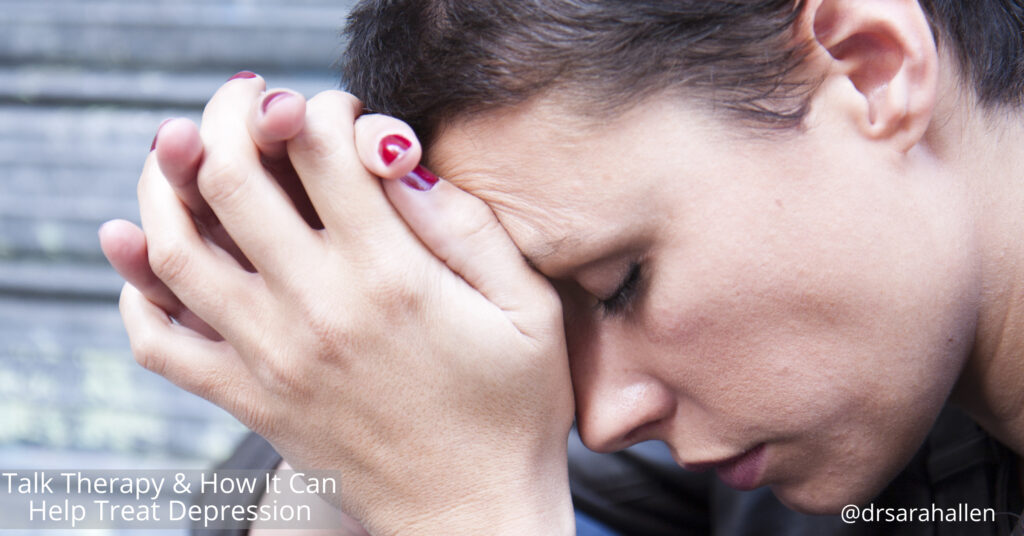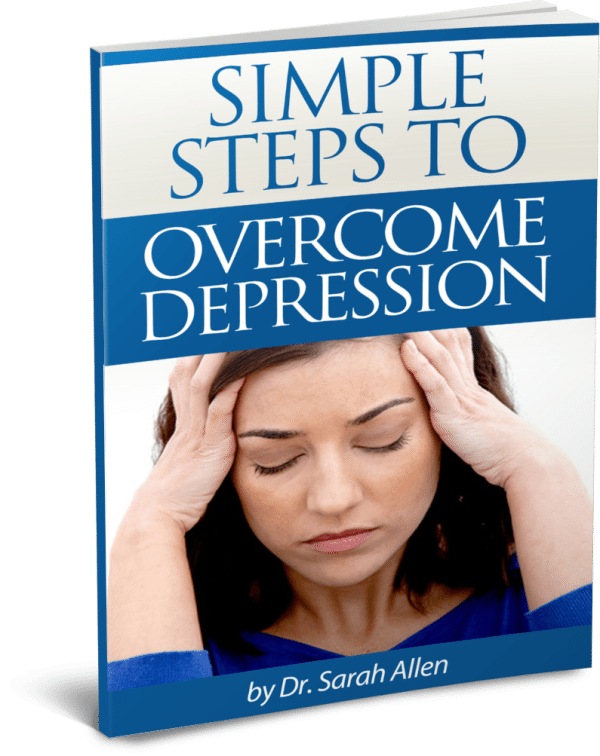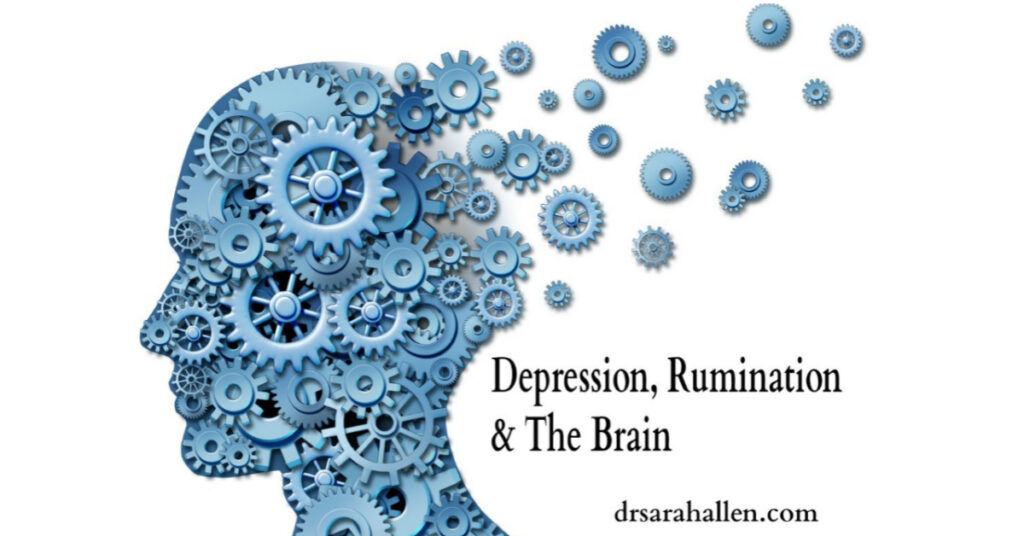
Depression is a common mental health disorder affecting millions of people worldwide. It is characterized by persistent feelings of sadness and hopelessness, along with a loss of interest in activities that were once enjoyable. Depression can often feel like an overwhelming, isolating experience but if you are navigating this difficult journey, please know that you are not alone, and there are effective ways to manage and alleviate the symptoms. One such approach is talk therapy, also known as psychotherapy.
The right type of therapy can be instrumental in managing depression and in this blog I am going to discuss the various types of depression, examine different therapy methods available for treating depression, and talk more about Cognitive Behavioral Therapy (CBT), which in my 25 years of working with people with depression, I have found to be one of the most effective techniques, and one that is backed by substantial research.
Understanding the Different Types of Depression
According to the Diagnostic and Statistical Manual of Mental Disorders (DSM-5), the main types of depression include major depressive disorder, persistent depressive disorder (dysthymia), bipolar disorder, and several others related to specific circumstances such as postpartum depression and seasonal affective disorder. Understanding the type of depression a person is experiencing is crucial in determining the most suitable treatment plan.
Before diving into the various therapy options available for treating depression, it is essential to recognize the distinctions among the multiple types of depression, as the appropriate treatment method may vary depending on the specific condition. The primary types of depression recognized by the DSM-5 include:
- Major Depressive Disorder (MDD) – Characterized by a profound and persistent sense of sadness, hopelessness, and a loss of interest in previously enjoyable activities. MDD can disrupt an individual’s daily life, work, and relationships.
- Persistent Depressive Disorder (Dysthymia) – A chronic form of depression that lasts for at least two years, dysthymia often results in a continuous low mood, even if the individual does not meet the full criteria for MDD. Dysthymia can impact an individual’s overall quality of life, affecting their ability to function at home, work, and in social situations.
- Bipolar Disorder – Previously known as manic depression, bipolar disorder involves extreme mood swings, alternating between episodes of depression and mania. These episodes can last for days, weeks, or even months, and the severity can significantly impact an individual’s ability to maintain their daily routine.
- Other forms of Depression – Certain life events and specific conditions, such as postpartum depression and seasonal affective disorder, can also lead to depressive episodes. These forms of depression require tailored therapy approaches to address the unique challenges they present.
Exploring Therapy Methods for Treating Depression
One of the most common methods used to treat depression is psychotherapy and there are several different theoretical approaches a therapist can use. These include Cognitive Behavioral Therapy (CBT), Interpersonal therapy (IPT) and Psychodynamic therapy. Mindfulness-based practices are also gaining popularity as complementary approach to alleviating depression. Each method varies in its approach, timeline, and focus, and it is essential to assess which method best aligns with an individual’s needs.
- Cognitive Behavioral Therapy (CBT): CBT focuses on identifying and changing negative thought patterns and behaviors that contribute to depression. It helps you recognize how your thoughts affect your feelings and actions, empowering you to develop healthier mental habits.
- Interpersonal Therapy (IPT): IPT addresses interpersonal issues that may be contributing to your depression, such as relationship conflicts, life transitions, or social isolation. By improving communication skills and resolving conflicts, IPT aims to reduce depressive symptoms and enhance social functioning.
- Psychodynamic Therapy: This therapy explores unconscious patterns and past experiences influencing your current behavior and feelings. While I do ask my clients about their childhood and formative experiences and try to connect how that might be influencing their current state, I tend to not spend a lot of our time together going over the past. I find it more useful to focus on the here and now and develop coping strategies for dealing with today’s problems. I typically use CBT and IPT when working with my clients as I find those to be more effective and help reduce symptoms more quickly .
Once we determine the type of depression you are experiencing, we can explore your therapy options. Different people respond to different treatments, making it essential to find the most suitable approach. In my opinion, it is best to first take a thorough history, see what is happening for the person at the moment and once we understand their unique needs are, we can determine individualized treatment. Using my broad clinical experience, and collaborating with my client to see what makes most sense for them, we utilize the most appropriate strategies that best match their needs.
Here’s how psychotherapy can help with depression:
- Identifies Triggers: Psychotherapy helps individuals identify the triggers or underlying causes of their depression, such as relationship problems, grief, stress, or unresolved past events. Understanding these triggers is essential for managing depressive episodes.
- Changes Negative Thinking Patterns: Depression often involves persistent negative thoughts. Techniques like Cognitive Behavioral Therapy (CBT) help individuals recognize and change these harmful thought patterns.
- Improves Coping Mechanisms: Psychotherapy teaches valuable coping strategies to deal with life’s stresses and challenges rather effectively, which can reduce the impact and recurrence of depressive episodes.
- Develops Better Habits: Psychotherapy can aid in creating healthier routines and habits, such as regular exercise, better sleep practices, and improved nutrition, all of which can have a positive impact on mood.
- Provides Support and Validation: Simply speaking about worries and stress with a therapist can provide a sense of relief and validation. Being understood and supported aids in the healing process.
Among the different therapeutic methods, Cognitive Behavioral Therapy (CBT) has emerged as one of the most well-researched and scientifically proven techniques for treating depression. A recent study published in the Journal of Clinical Psychiatry revealed that CBT led to a 55.2% reduction in depression symptoms in participants. But what makes CBT stand out from other forms of therapy? Firstly, CBT is a goal-oriented practice that addresses an individual’s negative thought patterns and challenging behaviors. By helping individuals recognize, understand, and modify cognitive distortions, CBT facilitates lasting changes, ultimately leading to improvement in mood and overall mental wellness.
Cognitive Behavioral Therapy (CBT): A Closer Look
CBT is a goal-oriented approach to therapy that has proven to be highly effective in treating depression. Notable for its short-term and targeted focus, CBT is aimed at identifying and addressing negative thought patterns (cognitions) and challenging behaviors that may contribute to an individual’s depressive symptoms. Some of the key components of CBT for depression include:
- Identifying and Challenging Cognitive Distortions – CBT assists individuals in recognizing unhealthy thought patterns, such as all-or-nothing thinking, personalizing negative events, or jumping to conclusions. By examining the validity of these thoughts, individuals can reframe them in a more realistic and balanced manner.
- Behavioral Activation – CBT encourages individuals to engage in activities or behaviors that are rewarding and enjoyable, which may have been neglected due to depressive symptoms. Behavioral activation helps improve mood and fosters a greater sense of accomplishment.
- Problem Solving – CBT provides practical tools for identifying problems related to an individual’s depression and developing strategies to address these challenges. This process encourages the development of coping skills and resilience in overcoming difficulties.
- Relapse Prevention – A crucial aspect of CBT is teaching individuals to maintain the progress they have made during therapy and apply the learned techniques to future challenges. This focus on sustainable change ensures lasting improvement in mental well-being.
If you would like to read more about CBT I have written this article – What Is CBT? A Simple Guide to Understanding Cognitive Behavioral Therapy
Research and Statistics Supporting CBT for Depression
Numerous studies have established the efficacy of CBT as a treatment for depression. A study published in the Journal of Clinical Psychiatry found that integrating CBT into primary care for depression resulted in a 55.2% reduction in depression symptoms among participants.
Another study published in JAMA Psychiatry concluded that virtual CBT not only helped reduce symptoms of depression but was also cost-effective compared to face-to-face therapy, making it an accessible solution for many individuals struggling with depression.
Additionally, a meta-analysis of 115 studies revealed that CBT is equally effective in treating both major depressive disorder and persistent depressive disorder, further cementing its status as a preferred treatment choice for depression.
Taking the First Step
If you’re considering talk therapy, I want to share some practical tips to get started:
- Research Therapists: Look for licensed therapists who specialize in treating depression. Consider their approaches, qualifications, and client reviews to find a good fit.
- Ask Questions: Don’t hesitate to ask potential therapists about their experience, treatment methods, and how they can help you specifically. Make sure the therapist is fully licensed and has at least 10 years post license experience. It is totally fine to ask these questions, the therapist shouldn’t mind answering them and will be happy to make you feel comfortable with going ahead with making an appointment. A good therapist will be open, transparent, and willing to address your concerns.
- Commit to the Process: Therapy is a journey, not a quick fix. Be patient with yourself and the process. It’s normal to face ups and downs, but with persistence, you’ll see progress over time.
Conclusion
There is no one-size-fits-all approach to treating depression. Some people treat depression with medication only, other people prefer to not take medication and only utilize psychotherapy, and when depression symptoms are more severe, a combination of talk therapy and medication can be the most effective treatment to reducing depression.
I hope this article can help individuals struggling with depression to make informed decisions about their treatment journey. Ultimately, the right therapy plan can significantly alleviate depression symptoms and foster long-lasting improvements in mental well-being.

If you have any questions, or if you would like to work with me and learn more about how to manage depression, please phone me at 847 791-7722 or on the form below.
If you would like to read more about me and my areas of specialty, please visit Dr. Sarah Allen Bio. Dr. Allen’s professional license only allows her to work with clients who live in IL & FL & the UK and unfortunately does not allow her to give personalized advice via email to people who are not her clients.
Dr. Allen sees clients in person in her Northbrook, IL office or remotely via video or phone.

What Can I Read That Helps Me While I Am Waiting For My First Appointment With Sarah?
Download this free report to gain valuable insights and practical strategies for managing depression and reclaiming your peace of mind.













